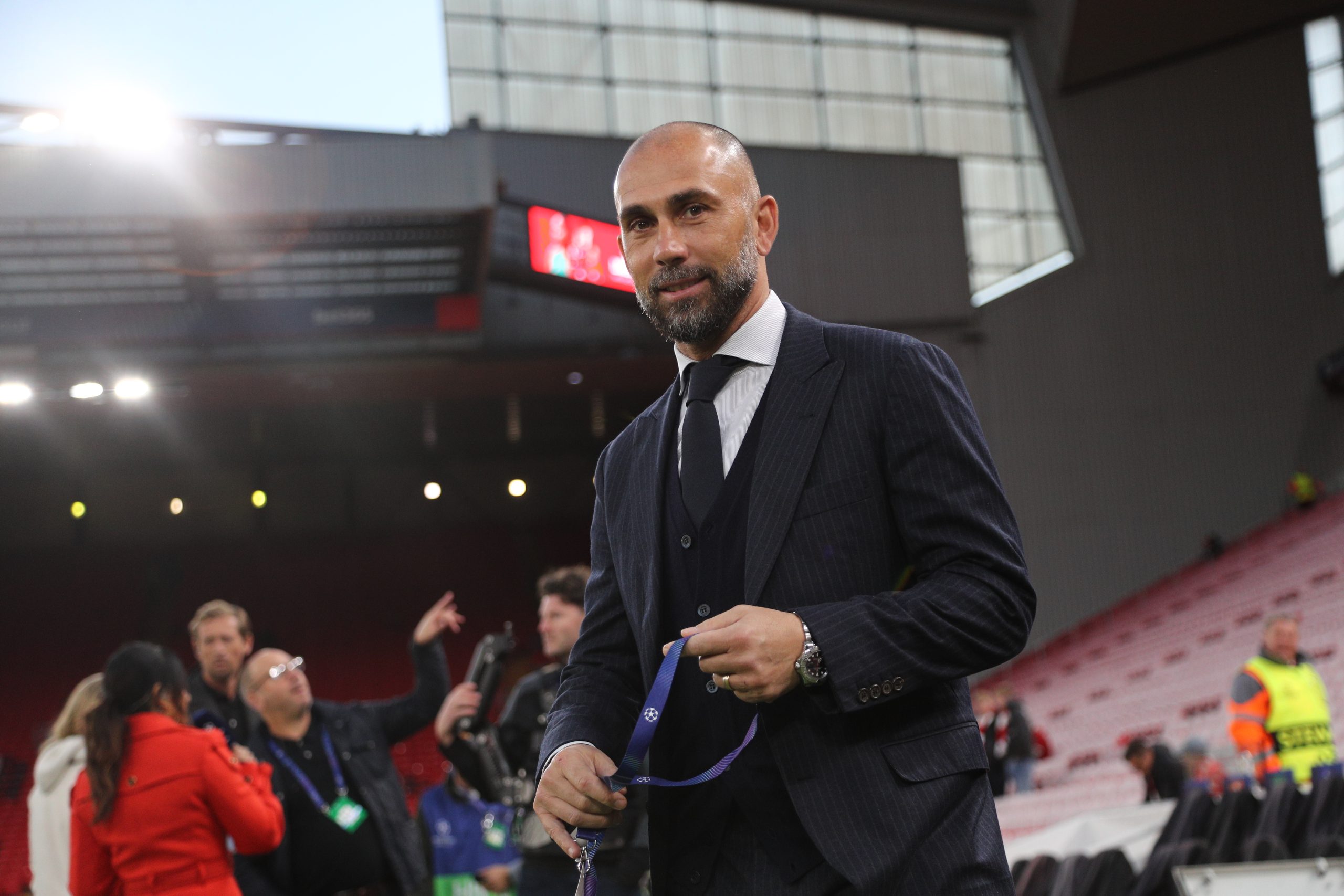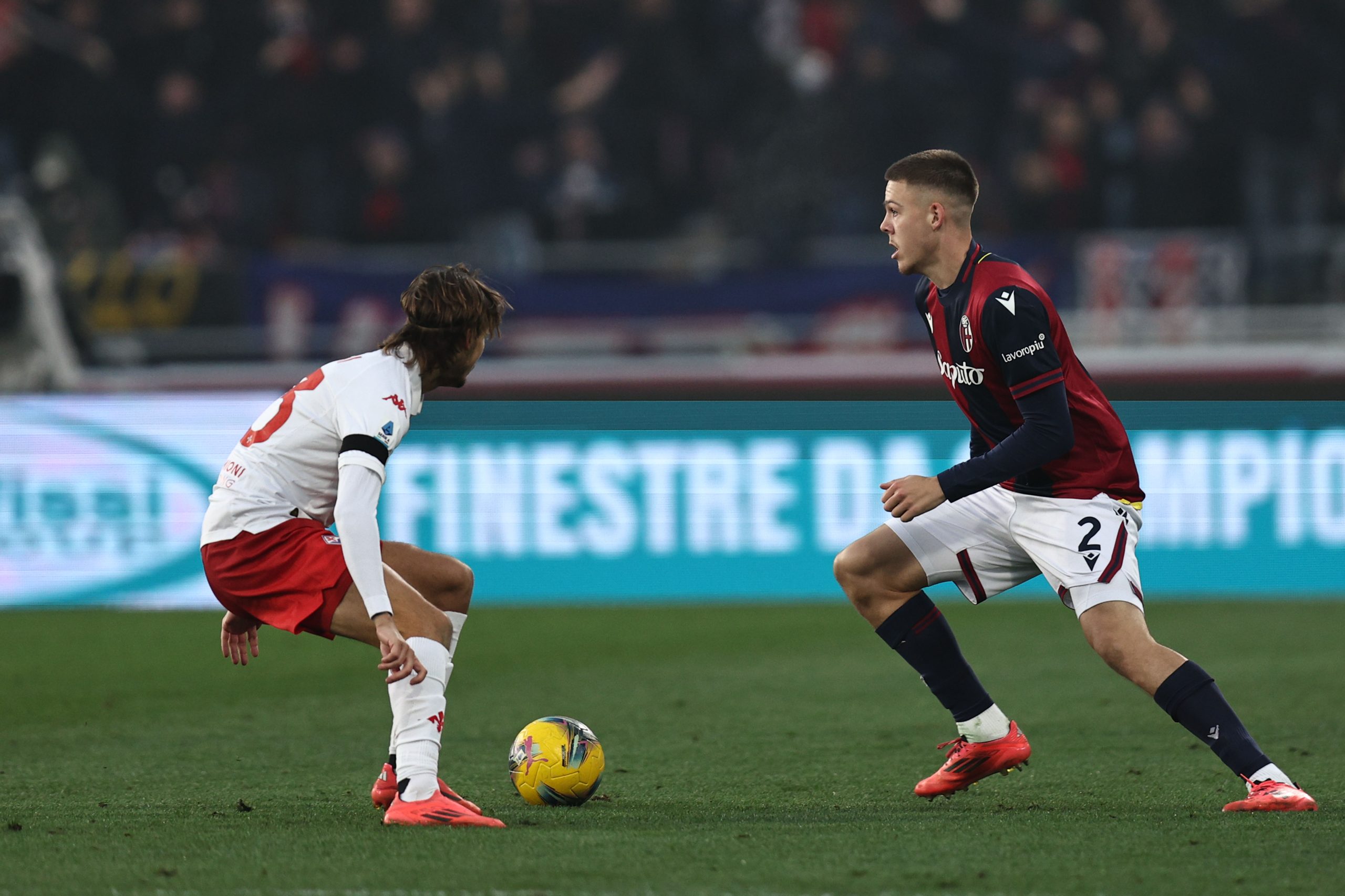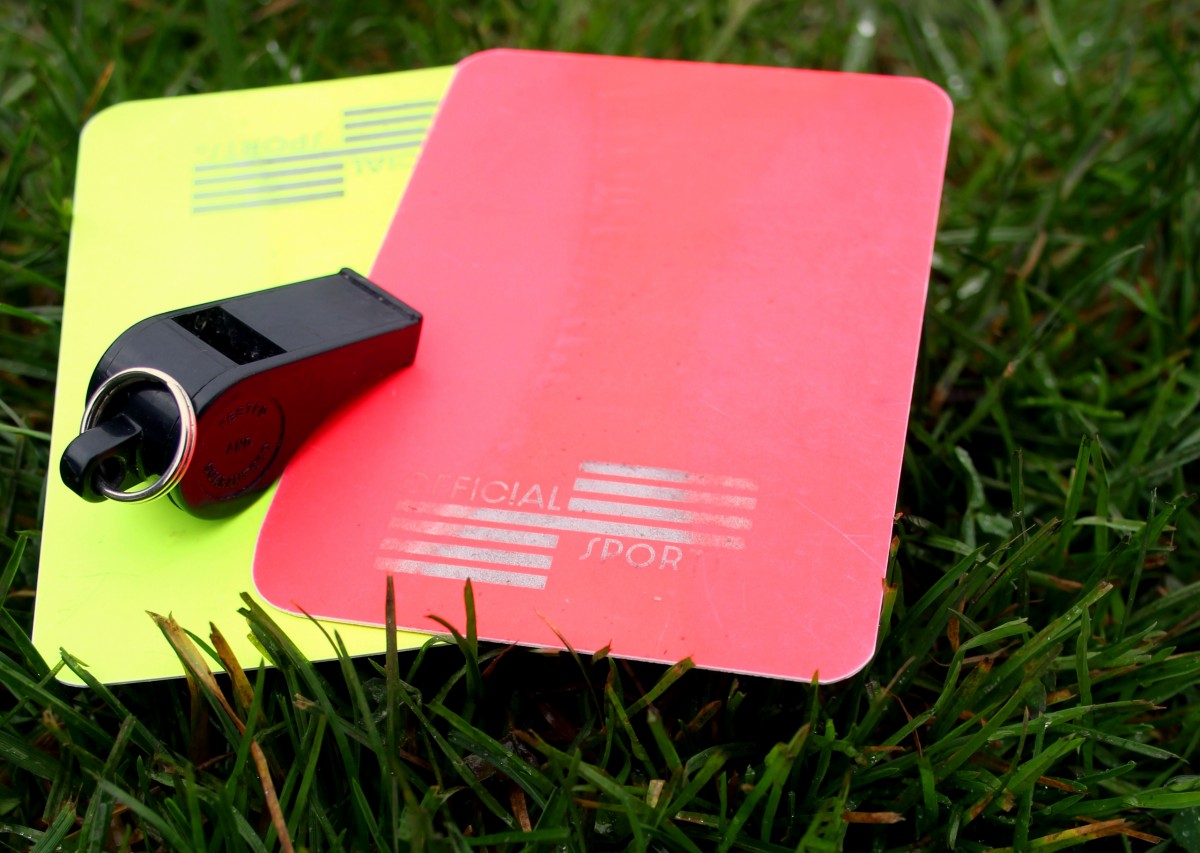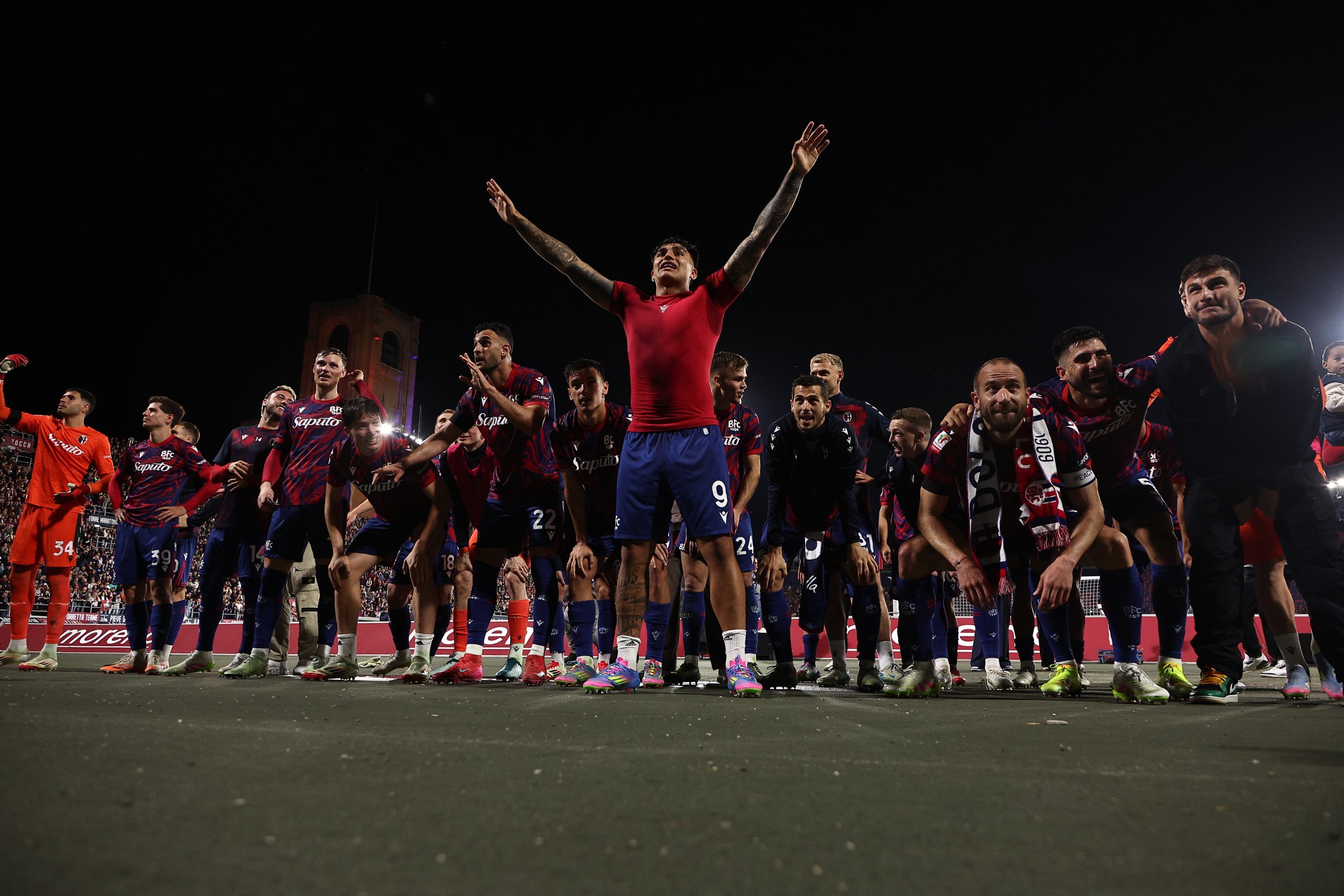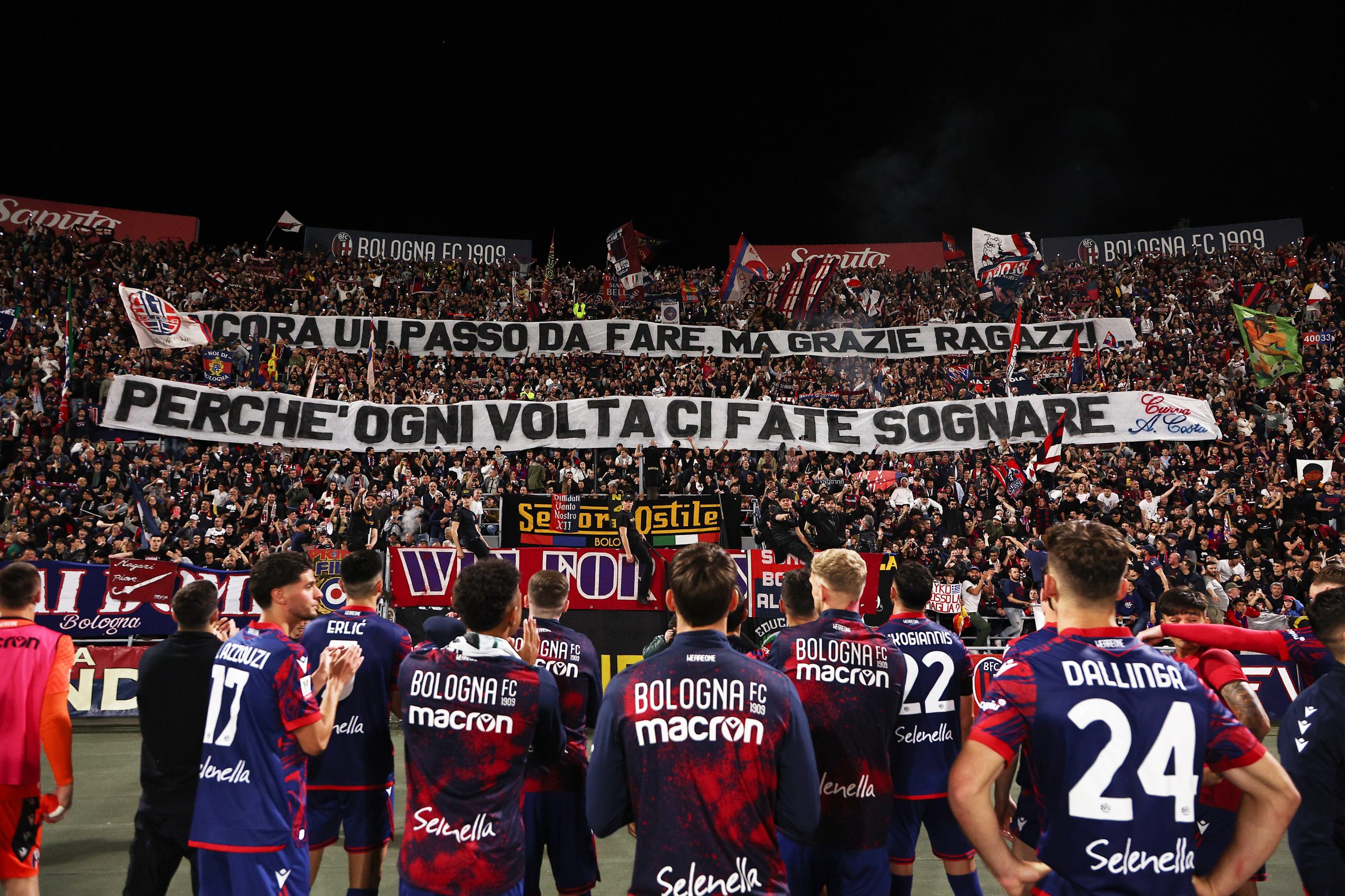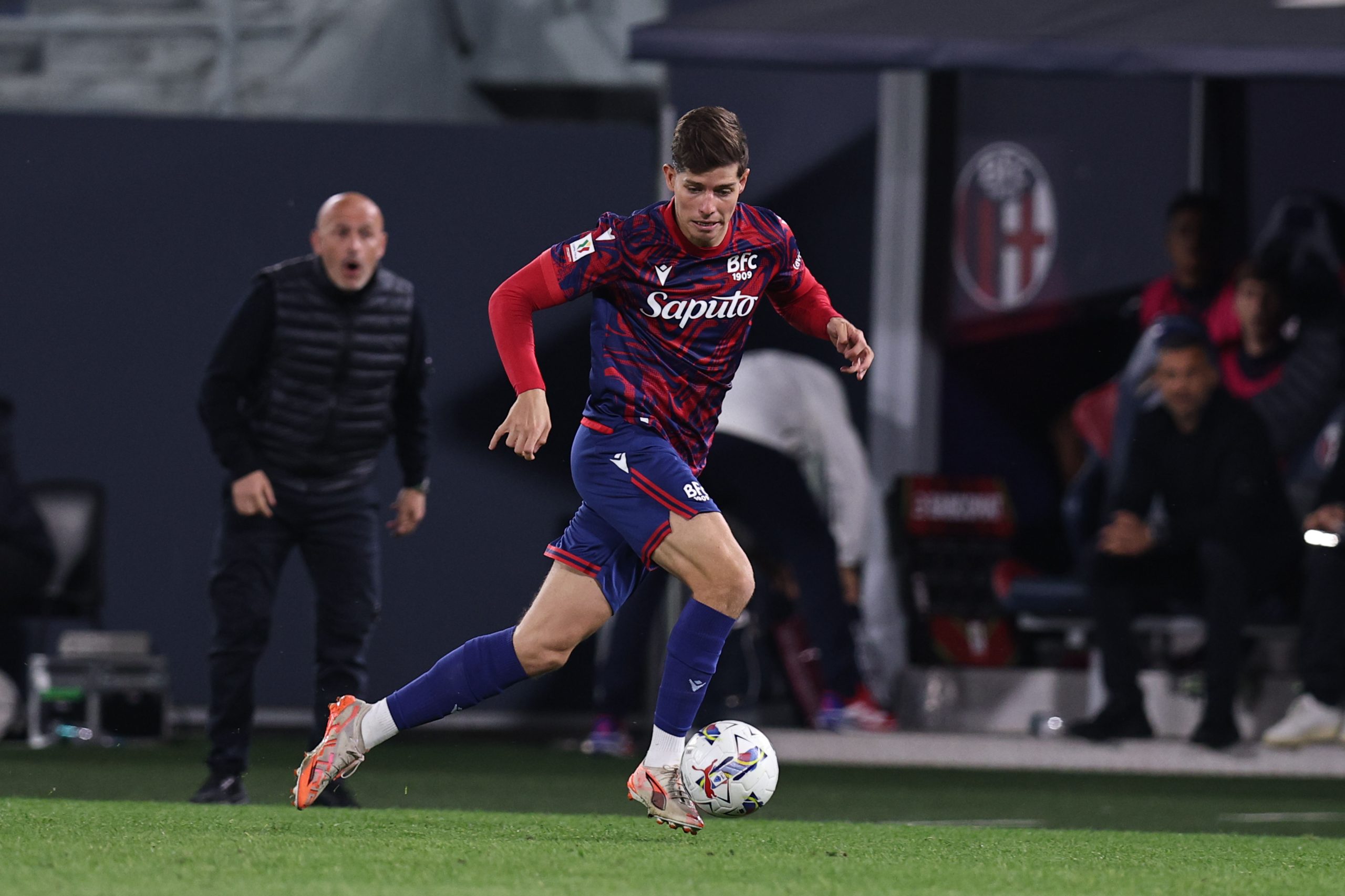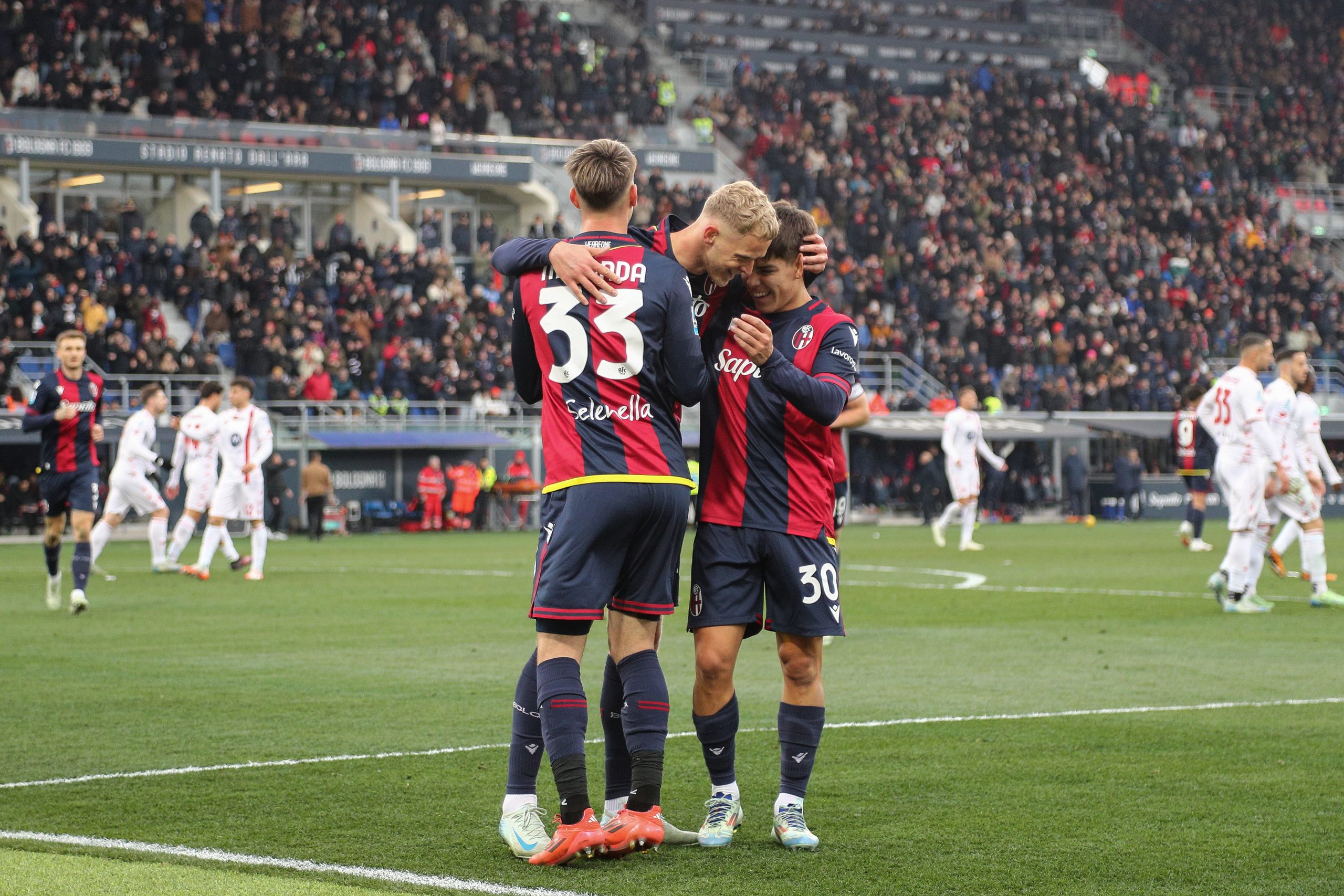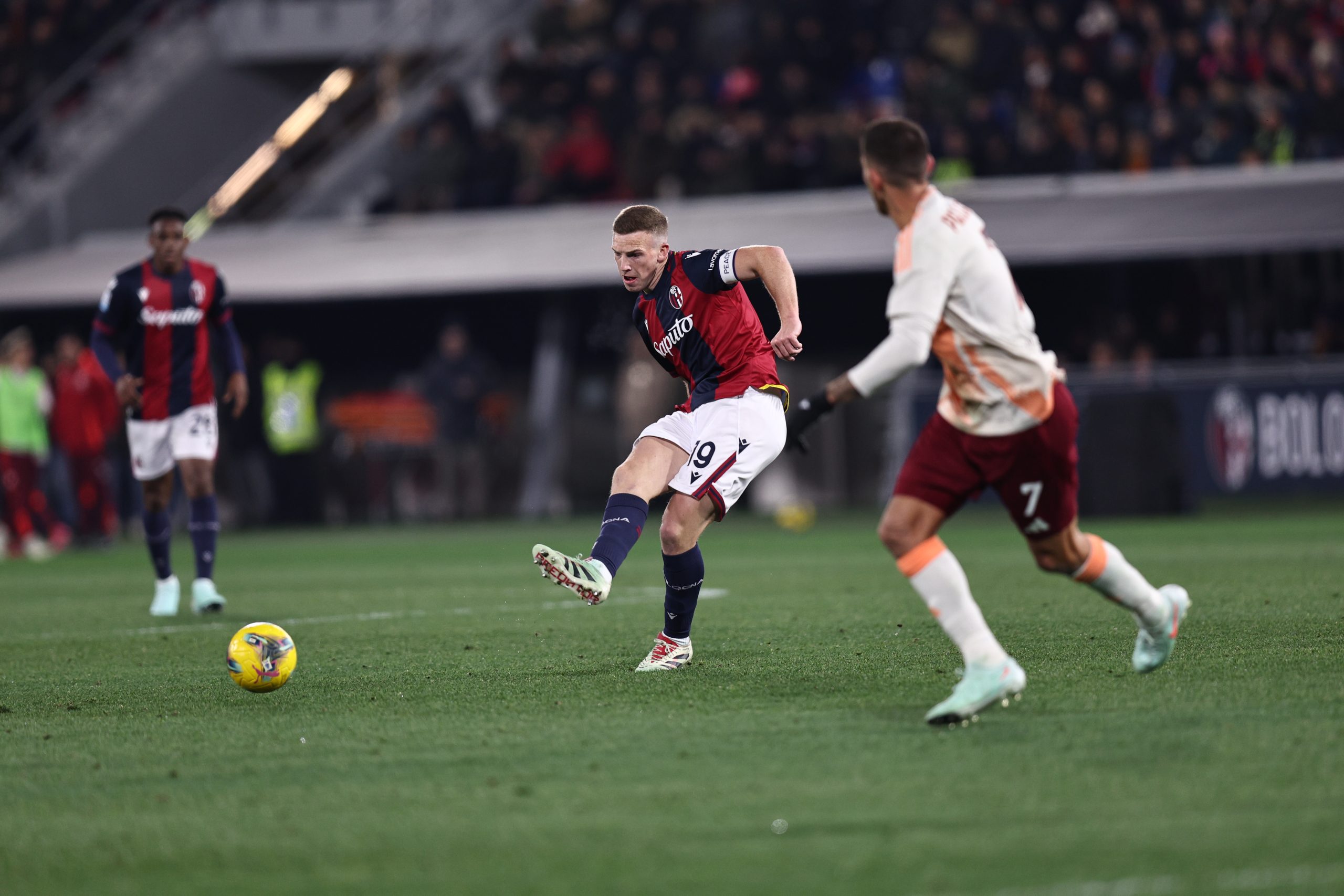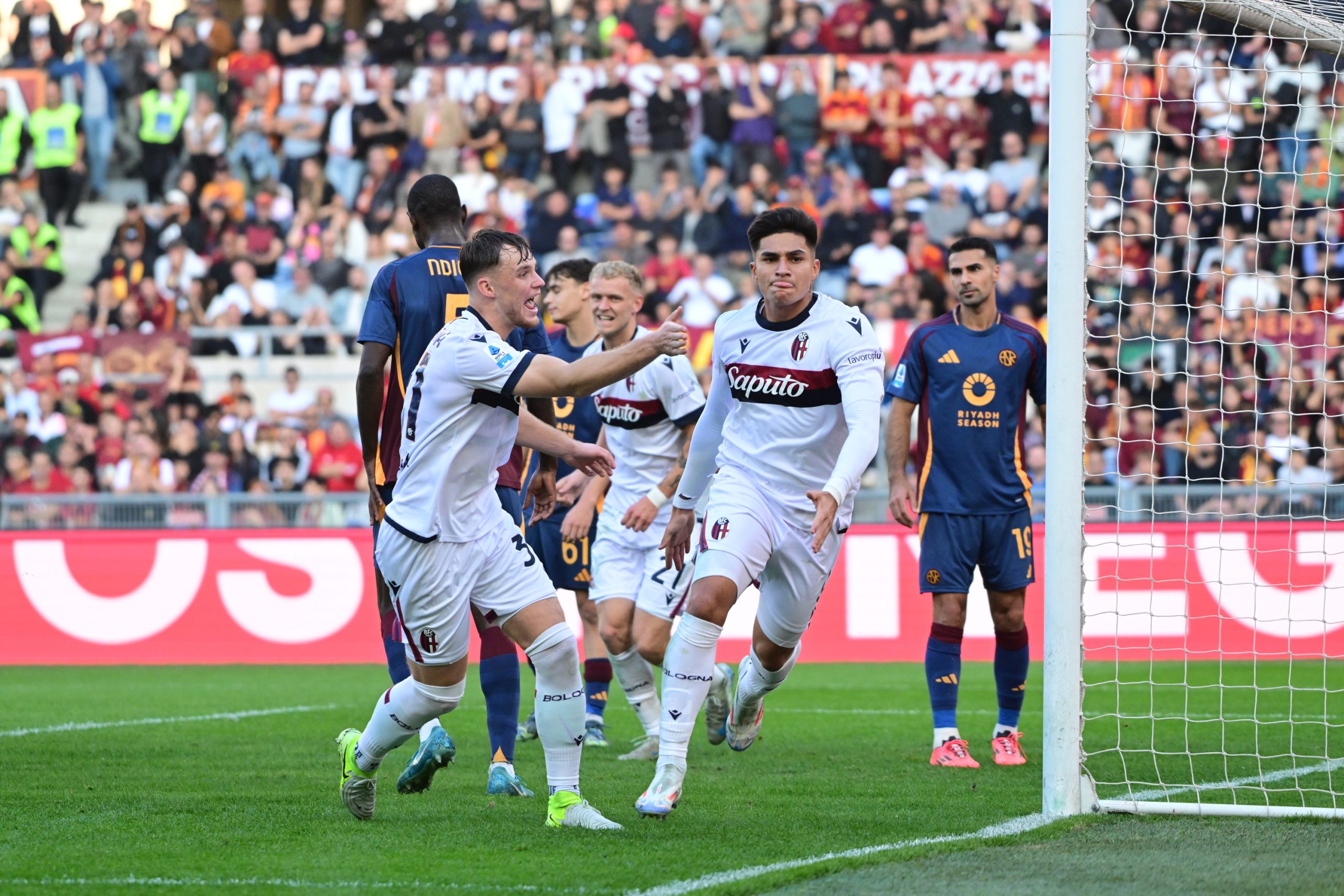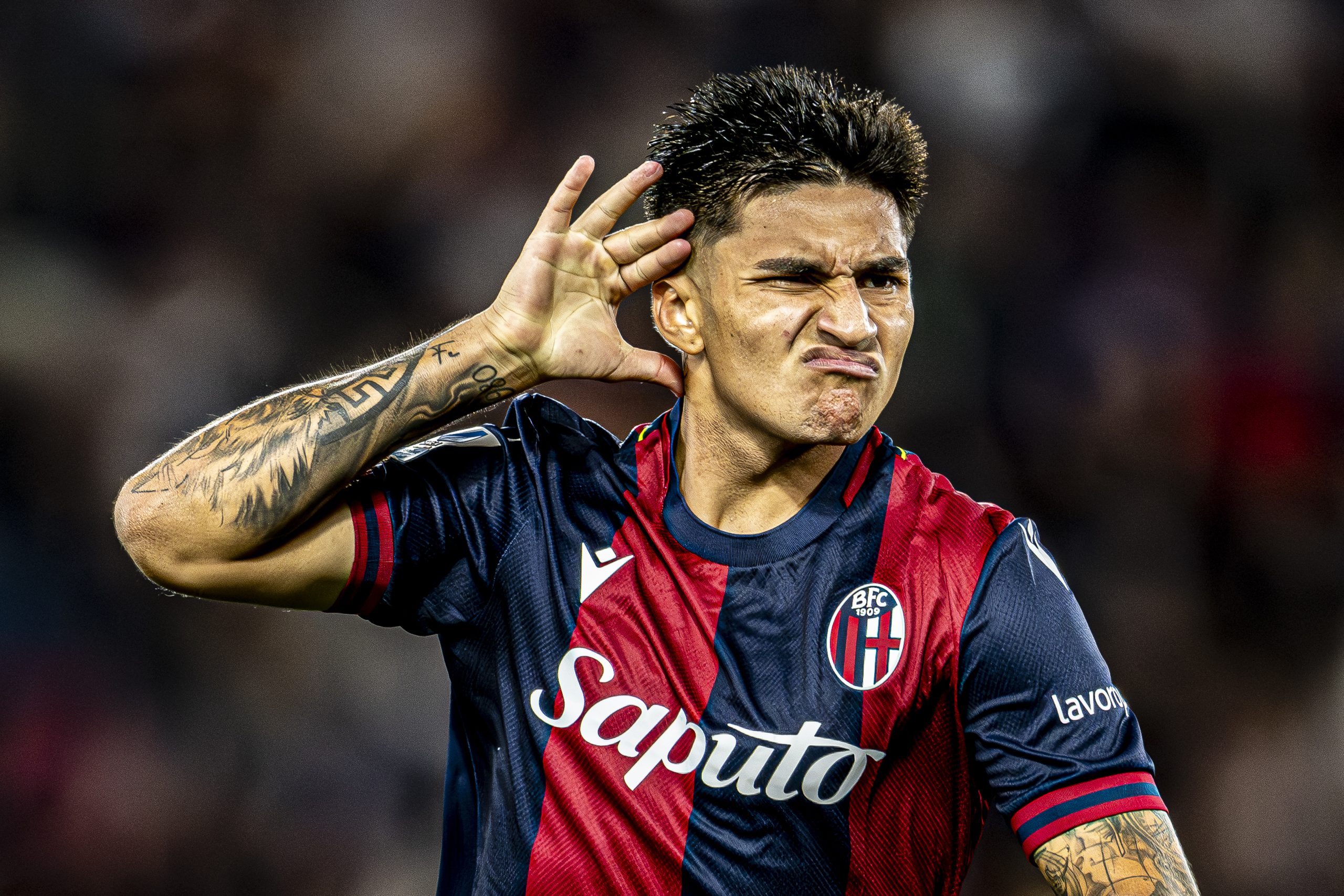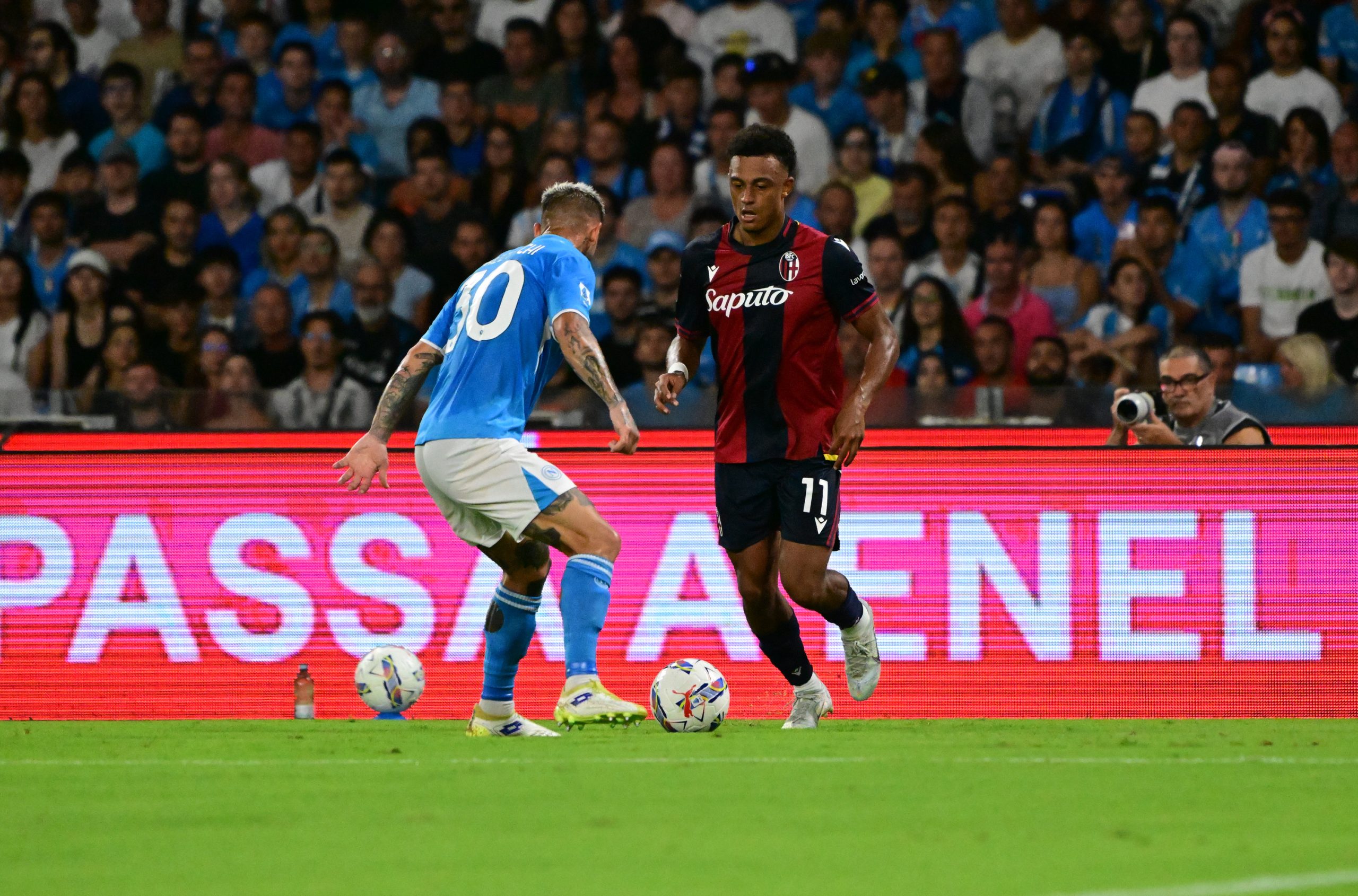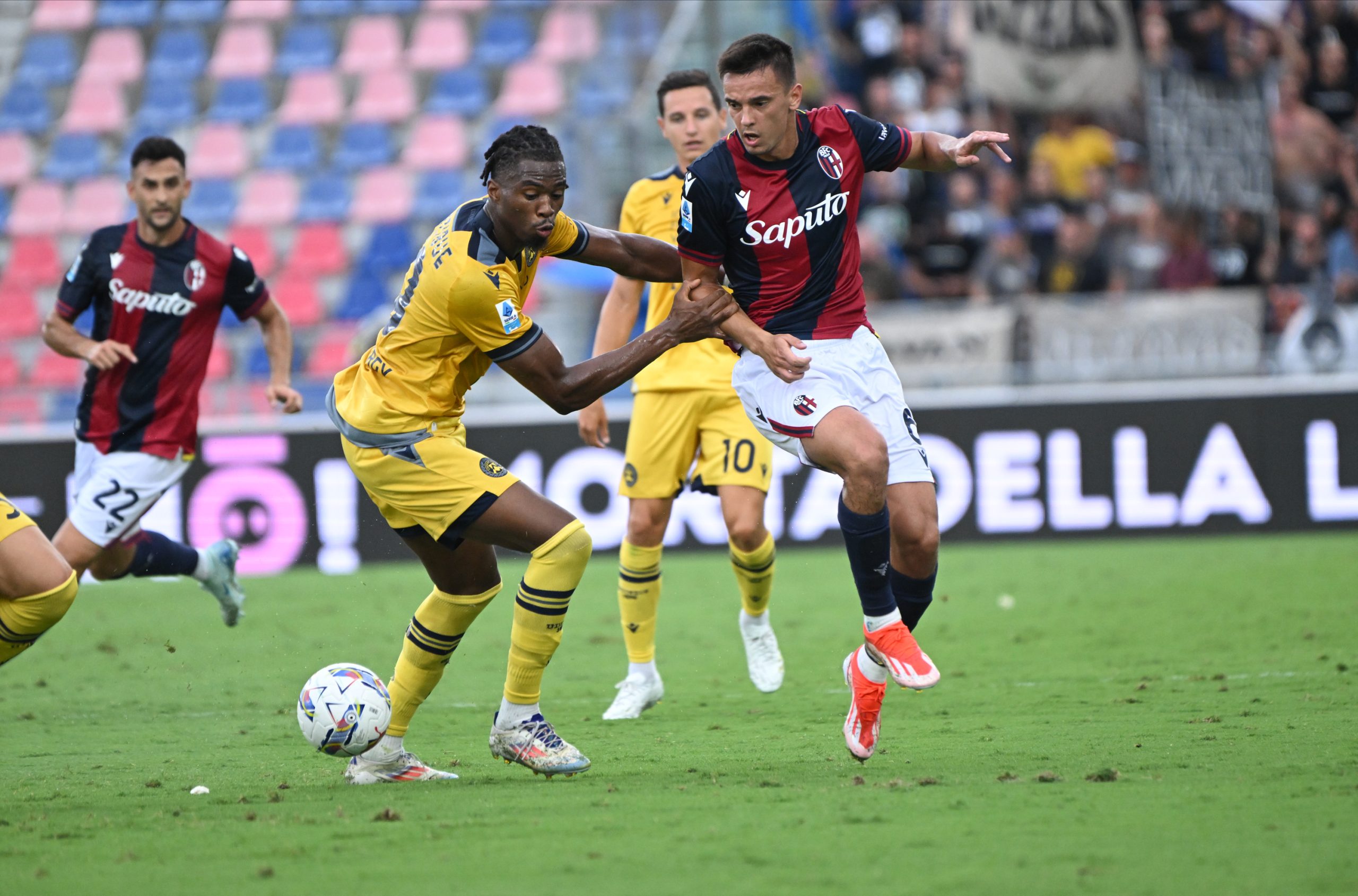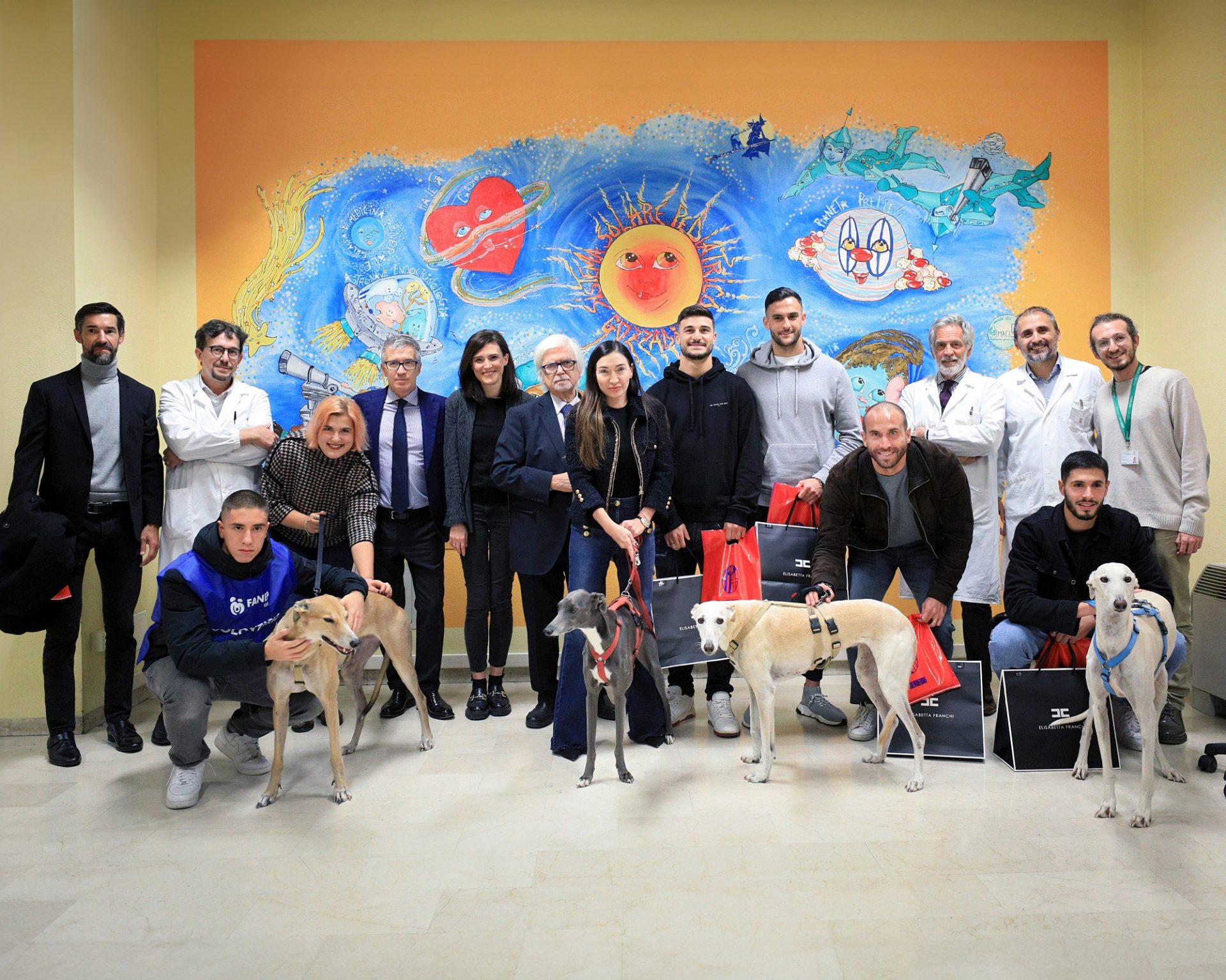The Pet Co-Therapy project in Bologna
From the races in the UK and Ireland to pediatric wards, from hunting in Spain to the rooms of the very youngest patients: the Pet Co-Therapy project works to bring greyhounds that have suffered mistreatment into the IRCCS Policlinico di Sant’Orsa with the aim of supporting the well-being of children and young people through the so-called “animal assisted interventions”, as well as the well-being of the dogs themselves. The new initiative has been made possible by the collaboration between the IRCCS and the FNEP association, as well as the fundamental support of the Fondazione Elisabetta Franchi Onlus and Bologna FC 1909. Last Wednesday, 15 November, saw the official inauguration of the project with a visit to the IRCCS by Franchi herself and a delegation from the Club. The CEO Claudio Fenucci was present alongside players Lorenzo De Silvestri, Charalampos Lykogiannis, Federico Ravaglia and Riccardo Orsolini.
The project begins with a two-year plan: eight greyhounds (accompanied by their volunteer handlers/owners) will meet the children hospitalised in the Pediatric Neurology, Emergency Paediatrics and Specialised Paediatrics Units of Sant’Orsola. The initiative will include educational interventions on the wards designed to motivate the young patients, increase their self-esteem and encourage their verbal communication skills and social interactions.
What are animal-assisted interventions? The project was born from the FANEP association’s over 10 years of experience in the field of animal-assisted interventions. Generally referred to as “Pet Therapy”, animal-assisted interventions include a wide range of activities aimed at improving health and well-being through the aid of companion animals. According to national guidelines from the Ministry of Health: ‘Pets can play an important role as mediators in therapeutic-rehabilitative and educational processes […] their use in the therapeutic field has not only experienced a significant increase but is also increasingly scientific, having evolved from initial empiricism.
The project in question is more properly defined as Pet Co-Therapy. As Doctor Simona Simone of FANEP explains: “We talk about co-therapy to highlight the approach towards integrated medicine that works in conjunction with traditional medicine. That is, it does not replace anything or stand in opposition, but supports the natural path to improving health”.
Specifically, the project aims to encourage integration within the hospital environment; build opportunities for significant contact with the immediate environment to improve “compliance”, i.e. the patient’s participation in the treatment process; create moments of lucidity and expression that improve the patient’s quality of life during the hospital stay; to foster a shared emotional experience, and create educational interventions to assist with difficulties in relationships and emotional distress.
Marcello Lanari, Head of Pediatrics at the IRCCS Policlinico di Sant’Orsola explained: “Interacting with animals teaches children to respect them, understand their way of communicating, and take care of them in the way that they have to. When an animal is entrusted to a child, it helps them to take on responsibility, something that will be important in other areas of their lives. I believe that giving a child the opportunity to care for a pet is one of the best and most formative gifts that one could give. This project takes in animals that have been victims of violence or abandonment and brings them close to the children who are at a difficult point in their lives. The contact between them creates positive feelings and tenderness and can help both the child and the animal to experience moments of peace and fun. We are grateful, along with our children and their families, for the support of Mrs. Elisabetta Franchi and Bologna FC on this beautiful initiative”.
Professor Duccio Maria Cordelli, Head of Pediatric Neuropsychology, affirmed: “Let’s celebrate this project as another important forward step in the care of our young people. Animal-assisted interventions, when used in conjunction with modern medical and surgical practices, have a scientifically proven positive influence on the recovery process, especially for children with serious illnesses affecting the central nervous system. Seeing the unique connection that these wonderful animals manage to create with our children is a great source of joy, satisfaction, and inspiration for us as professionals. I want to express my heartfelt thanks to FANEP< Bologna FC, and Fondazione Elisabetta Franchi”.
Mino Zucchelli, Director of Pediatric Neurosurgery, stated: “In our department, we treat the most terrible diseases that affect the brain and spinal cord with drugs and scalpels. For the children, these wonderful animals are not just a distraction, but a real part of the treatment process that accelerates their healing. Their smile is proof of this.”
The role of Elisabetta Franchi and Bologna FC.
The project has been made possible by the generous support of the Fondazione Elisabetta Franchi Onlus and Bologna FC 1909. Central to the city of Bologna, the two entities collected and donated to FANEP the 27,000 Euros necessary for the implementation of the Pet-Co Therapy service. The Elisabetta Franchi brand and Bologna FC 1909 had already begun to join forces on the project last season with the creation of a limited edition fourth kit shirt. Designed by Elisabetta Franchi, partner of the Rossoblù club, and worn by Bologna players during the home match against Atalanta on 9 January, the shirts were auctioned off online with the proceeds going towards the contribution made by Elisabetta Franchi and Bologna to finance this project in full.
Elisabetta Franchi, stylist and entrepreneur, spoke: “I truly believe that these greyhounds, wonderful and very sweet creatures, can give a lot of love and moments of peace to these children. This is an ambitious project, useful in reminding us all about how precious and unique the relationship between people and their pets can be”.
Claudio Fenucci, CEO of Bologna FC 1909, stated: “Bologna as a Club is strongly rooted in our territory and can represent an important touchstone for many solidarity projects. We have notable communicative strength and value and, thanks to the collaboration with a great partner, in this case Elisabetta Franchi, we are able to mobilise our resources to bring important social responsibility projects to fruition. It is our duty, as well as a source of satisfaction, to have an area within the Club that is entirely dedicated to these initiatives, to constantly reinforce our relationship with the city and province of Bologna”.
The multidisciplinary team. The project will be coordinated by FANEP, headed up by psychologist Simona Simone and assisted by Daniela Poggioli and Daniele Terni, Health Director of the I Portoni Rossi Veterinary Hospital. The multidisciplinary team will also be joined by Doctor Paola Gualandi, a psychologist from Pediatric Neuropsychiatry, as well as the owners of the volunteer dogs and volunteers from FANEP.
President of FANEP, Emilio Franzone, stated: “After years of work, we have managed to make it onto the wards, bringing enthusiasm and joy to many children and their families. In this climate of well-being, we also want to involve the healthcare personnel who have shared this experience. As an association, we want to thank all those who have worked to support the project: from the hospital company to the entrepreneur and stylist Elisabetta Franchi and Bologna FC. During the visit to the IRCCS, everyone showed great interest in the docility of the dogs and making the children smile.”
The story of the four-legged friends involved in the project
Predominantly greyhounds rescued from Ireland and Spain, they were used for racing, competitions and hunting. In these countries, there is no law that protects them from mistreatment, abandonment and death. Galgos and Greyhounds are particularly docile, cooperative, friendly dogs, with great emotional intelligence and sensitivity to others, but above all, they are gentle with the most fragile children.
The project involves a group of adopted dogs who are well-socialised and well-integrated into families and who have proven particularly suitable for these activities. Some examples: Cesare is a greyhound who was “rejected” as a puppy by Irish trainers because he was physically unfit to compete on the track. Cloeìver, on the other hand, is a greyhound who competed in Ireland and risked being put down because he was no longer winning races. Marengo is a Spanish Galgo exploited for hunting in Spain for several years and then abandoned in terrible conditions.
